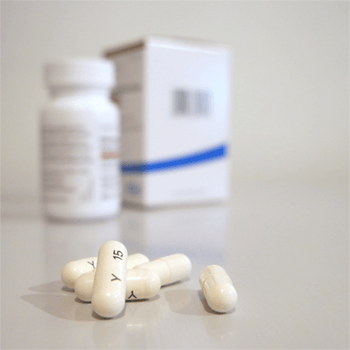Prescription medication – protect your kids and grandkids

The Substance Abuse and Mental Health Services Administration estimates that thousands of children begin experimenting with prescription drugs every day.
By Ellie Grossman, MD.
Children (your kids and grandkids) aren’t going far to get high. The Substance Abuse and Mental Health Services Administration estimates that thousands of children and young adults begin experimenting with prescription drugs every day, often getting them from nightstands or medicine cabinets at home or in relatives’ homes. In fact, the National Institute on Drug Abuse notes that most teens get prescription drugs they abuse from friends and relatives, rather than “on the street.”
Prescription drug abuse is a major health issue, crossing all age groups. In fact, the situation is so dire that the Centers for Disease Control and Prevention (CDC) officially declared prescription drug abuse to be an epidemic.
Why do kids and teens abuse prescription drugs? Some say that stimulants like Adderall or Ritalin give them extra energy and focus when they are with friends or studying. Painkillers like Codeine or Oxycontin, or tranquillizers like Xanax, may help them feel like they “fit in” with others or help them cope with stress and emotions.
CHA has a resource guide on our website about prescription drug abuse and community services that can help you or your family. In addition, the Partnership for Drug Free Kids has suggestions on how to protect your children and grandchildren from this epidemic.
They recommend three steps with prescription medications:
- Monitor your pills. Take note of how many pills you have and keep track of your refills. If you find you need to refill your medications more often than expected it could signal a problem. Encourage other family members to regularly monitor their own medicine cabinets.
- Lock up your prescription medicine. Teens often abuse prescription drugs because they are easy to access. In fact, 64% of kids aged 12-17 who have abused pain relievers say they got them from their friends or relatives, typically without their knowledge.
- Get rid of expired or unused medications. It is important to dispose of medications properly. Some teens retrieve discarded drugs from the trash. To help prevent this, mix any unused medications with old coffee grounds or kitty litter. Put the mixture into an empty can or bag and discard. Do not flush medication down the drain or toilet. There are also designated medication disposal sites in many Massachusetts towns and cities (see list). Lastly, remove any personal information from prescription bottles or pill packages before you throw them away. This will help prevent unauthorized refills and protect you and your family’s privacy.
Learn more at www.drugfree.org and help us protect your kids.
Disclaimer
This articles provide general information for educational purposes only. The information provided in this article, or through linkages to other sites, is not a substitute for medical or professional care, and you should not use the information in place of a visit, call consultation or the advice of your physician or other healthcare provider.